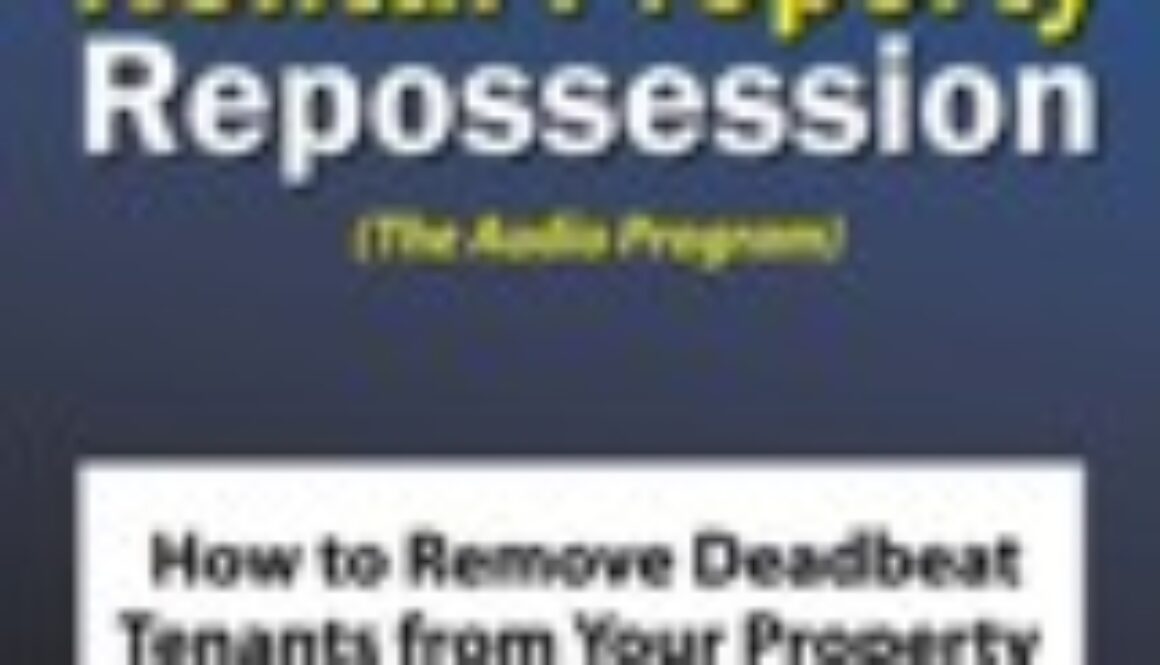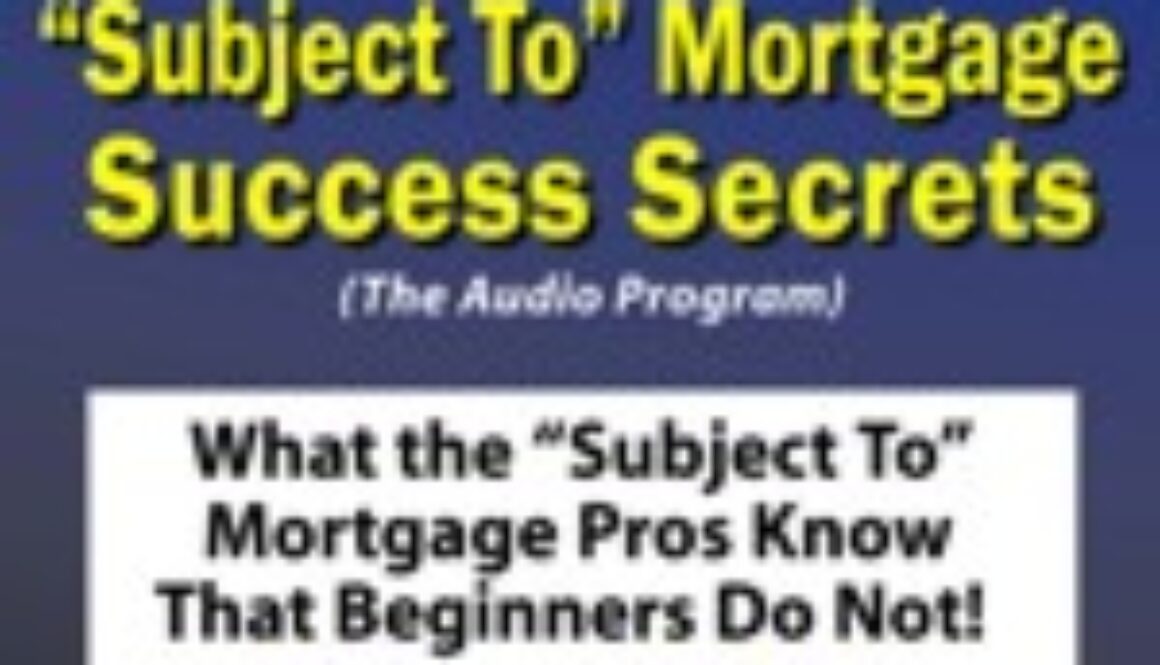 Bettie Corbin Tucker recently completed an AudioBook Review of “The TurnKey Investor’s Rental Property Repossession”. It is an extensive and thorough review.
Bettie Corbin Tucker recently completed an AudioBook Review of “The TurnKey Investor’s Rental Property Repossession”. It is an extensive and thorough review.
If you have deadbeat tenants who aren’t paying the rent on time or perhaps driving you out of your mind with lease violations, The TurnKey Investor”s Rental Property Repossession by Matthew S. Chan is exactly what you need. My husband and I, as landlords, have experienced some very strange happenings with our tenants: one tried to grow marijuana on the property and another kept an alligator in the basement. Evicting tenants via the court system can be a lengthy and costly procedure one most property managers and landlords would like to avoid; however, many of them have been brainwashed into believing that eviction is their only option.
Matthew Chan, a real estate investor and property manager, personally convinced me in this audio program that there are other legal, as well as quicker, ways to get tenants to move out. Listen with an open mind and learn from this excellent teacher. Although Mr. Chan specializes in lease options, his intent is to keep many properties without losing money because of non-paying tenants. As a teen he gained much expertise in regard to leases, agreements, and business letters since his mother owned rental property. This gave him a head start when he began building his own investment portfolio in 2000. With the help of a partner, he continued to expand his business, and today, he is recognized as an expert in the field of real estate investing.
This audio program came into being because Mr. Chan saw a definite need for property managers and landlords to have information on “unconventional” ways to deal with deadbeat tenants stressing that sometimes diplomacy is easier and less expensive than the bureaucracy of the legal system. When posting to a real estate message board on this subject, he had some very negative reactions. One responder said the author was presenting a theory as opposed to fact. However, the individual was wrong as Mr. Chan based his information on personal experience and an astounding decrease in his eviction rate by 80 percent. With proven results, this is fact and not theory! Admittedly, there are times that an eviction may prove to be the only way to go; however, this should not be the first course of action. The author lists the many glitches that property managers and landlords encounter with the eviction system glitches that result in loss of money and time. He also acknowledges to landlords that there are benefits to evicting, such as having the power of the law and state government on their side. It is obvious that a decision has to be made, and Mr. Chan provides common-sense advice on how to determine whether or not to evict. He also reminds students that they must know landlord/tenant laws in their state. The author stresses that if tenants are respectful, cooperative, and communicative, it is best not to evict. In talking with tenants, he strives for a personal talk and not a personal attack, using negotiating skills with firmness and a clear approach. In most cases he believes that tenants aren’t trying to steal but simply can”t budget their money or control their lives.
Mr. Chan lists three alternatives to eviction: classifying property as abandoned, paying off or bribing tenants, and getting a signed release. Although he has classified property as being abandoned, he has never paid a tenant off to vacate property even though, in some situations, he suggests it might be financially advisable. However, he personally believes in serving the greater good via eviction as opposed to rewarding bad behavior.
Matthew Chan likes to recommend the “Signed Release System,” calling this a clean process that has the cooperation of tenants. He lists the requirements for being willing to accept a signed release as well as the terms and rights of the agreement. Mr. Chan points out the importance of not stressing collections while trying to get an agreement, reminding listeners that plans for scheduled payments will be made down the line. One aspect of this agreement that tenants will find favorable is that they will have no eviction record to haunt them when trying to find housing in the future.
There is a four-step policy for release that, when carried out successfully, will save property managers and landlords much time and expense. It bears repeating that by obtaining signed releases, the author has eliminated 80% of his evictions. That is money in the bank! It is worthwhile to note that the author presents case study experiences to demonstrate some of the procedures he outlines in this audio program. He is forthright in sharing mistakes that he has made as well as success stories. Matthew Chan is real, honest, wise and a great instructor.
At the end of the CD, there is a bonus section in which the author discusses when and how to use collection agencies to collect lost rents and bad debts. Again, he backs up his words with statistics from personal experiences. This audio program provides much valuable data that is long overdue. Perhaps property owners and landlords will rethink their position on routine evictions and opt for a system that results in less frustration and faster results.
I recommend The TurnKey Investor”s Rental Property Repossession as a “must-own resource,” not only as a long-time publisher and nationally published author, but as a landlord who intends to follow Matthew Chan”s advice in the future.
A big thank you to Bettie for taking the time to review one of my latest audio titles.


 Kirkus Discoveries recently reviewed my book “The Intrepid Way”. I would say the review was mostly fair. However, I would say that including details was not part of the agenda of this book. There is no way any one book could contain all the details of everything I was explaining. Because the subject matter challenges conventional wisdom in an extreme way, I was pleasantly surprised that the review was not worse. Kirkus Discoveries is one of the book reviewer companies known for hard-hitting reviews. The Intrepid Way appeared to get through relatively unscathed.
Kirkus Discoveries recently reviewed my book “The Intrepid Way”. I would say the review was mostly fair. However, I would say that including details was not part of the agenda of this book. There is no way any one book could contain all the details of everything I was explaining. Because the subject matter challenges conventional wisdom in an extreme way, I was pleasantly surprised that the review was not worse. Kirkus Discoveries is one of the book reviewer companies known for hard-hitting reviews. The Intrepid Way appeared to get through relatively unscathed.
 G.A. Bixler recently submitted her latest book review of one of my consistent selling books, “The TurnKey Investor’s “Subject To” Mortgage Handbook”.
G.A. Bixler recently submitted her latest book review of one of my consistent selling books, “The TurnKey Investor’s “Subject To” Mortgage Handbook”.
 Bettie Corbin Tucker recently completed an AudioBook Review of “The TurnKey Investor’s Rental Property Repossession”. It is an extensive and thorough review.
Bettie Corbin Tucker recently completed an AudioBook Review of “The TurnKey Investor’s Rental Property Repossession”. It is an extensive and thorough review. 




You must be logged in to post a comment.